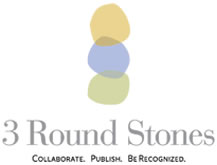Conference on Semantics in Healthcare and Life Sciences
CALL FOR SUBMISSIONS
Last Update: November 15, 2013
***CSHALS Submission Site Here***
Chris Baker, University of New Brunswick, St. John; and IPSNP Computing Inc., Canada
The conference is accepting full paper and poster submissions in the topic areas listed below. New for 2014, following peer review, accepted papers will be published online in a volume of the CEUR Workshop Proceedings series http://ceur-ws.org
AWARDS
- A cash prize of $250 will awarded by the International Society of Computation Biology for the most outstanding student poster.
- Software licences for Sentient Knowledge Explorer PRO will be awarded by conference sponsors IO Informatics to authors of the most outstanding paper.
CSHALS is invites the following submissions to the conference:
- Research papers: up to 12 pages that report on original research, and / or novel methodology that have led to significant outcomes with potential for lasting impact. Papers should demonstrate theoretical soundness of the research and/or strong evaluation.
- Application papers: up to 6 pages that report on original research with successful application demonstrated by an improvement over existing methods. Papers may include systems level approaches using established methodology in a novel application domain.
- Presentation Abstracts: Abstracts of upto 500 words reporting on ongoing projects that have met key project milestones but are not ready for fully documented disclosure. Submissions may also describe funded research proposals.
- Posters: Abstracts of 500 words reporting on early research results focusing on the design and application of semantic technologies in life science scenarios. Priority will be given to submissions offering a functional demo that can be shown at the conference.
Papers are to be prepared using Springer's LNCS templates and submitted via EasyChair.
- Spinger Author Guidelines (pdf) - >>Click Here<<
- Springer LNCS template files - >>Click Here<<
Please note: CSHALS conference registration for accepted presenters must be completed by January 31, 2014 remain eligible to present at CSHALS. Payment of the conference registration fee is the responsibility of the presenter.
To complete your submission go to: www.easychair.org/conferences/?conf=cshals2014
| KEY DATES |
|
| September 30, 2013 | Call for Paper and Poster Presentations Opens |
| January 10, 2014 | Call for Paper Presentations Closes |
| January 10, 2014 | Call for Poster Closes |
| January 14, 2014 | Paper Presentation Acceptance Notification |
| January 24, 2014 | Poster Presentation Acceptance Notification** |
| January 31, 2014 | Registration Deadline: Accepted Presenters Required |
**Poster submitters - if you require earlier approval in order to obtain an entry visa please contact This email address is being protected from spambots. You need JavaScript enabled to view it. to coordinate details.
CSHALS 2014 TOPIC AREAS:
- Linked Data - generation, representation, and management of data using the W3C’s Resource Description Framework (RDF) and Linked Data principles.
- Data Modeling - Ontologies, Taxonomies - practical application of knowledge engineering principles and techniques to data modeling.
- Text Analysis, NLP, Question Answering - use of semantic technologies for processing natural language.
- Cloud, Parallel, and Distributed Computing - use of semantic technologies for representation and management of distributed computational resources and workflows.
- Healthcare eScience - Translational Medicine, Pharmacogenomics, personal health records (PHR) - patient-centric use of semantic web technologies to handle the integration of clinical and biomolecular data.
- Business Intelligence, Machine Learning, and Analytics - semantic applications for data analysis, inference, and decision-making.
- Human Computer Interfaces - development of interfaces or design criteria that involve humans in the process of knowledge creation.
- Clinical Applications - Use of semantic web technology or architectures, including the orchestration of webApp ecosystems, as part of medical care delivery.
- Molecular Applications - Deployments of semantic web technology in biomolecular and biochemical domains.
- Applications to Emerging Health Disciplines - Use of the semantic web’s integrative and distributed nature to support emergence of novel applications in health care.
.....................................................................................................................
Program Committee:
-
Program Committee:
- Chris Baker, University of New Brunswick, St. John; and IPSNP Computing Inc., Canada
- Jonas Almeida, University of Alabama at Birmingham, United States
- Sivaram Arabandi, Ontopro LLC, United States
- Colin Batchelor, Royal Society of Chemistry, United Kingdom
- Judy Blake, The Jackson Laboratory, United States
- Olivier Bodenreider, US National Library of Medicine, United States
- Jerven Bolleman, Swiss Institute of Bioinformatics, Switzerland
- Albert Burger, MRC Human Genetics Unit, United Kingdom
- Greg Butler, Concordia University, Canada
- Werner Ceusters, SUNY at Buffalo, United States
- Paolo Ciccarese, Harvard University, United States
- Adrien Coulet, University of Lorraine, France
- Helena Deus, The University of Texas M.D. Anderson Cancer Center, United States
- Michel Dumontier, Stanford University, United States
- Melissa Haendel, Oregon Health and Science University, United States
- Robert Hoehndorf, University of Cambridge, United Kingdom
- Michael Krauthammer, Yale University Medical School, United States
- Patrick Lambrix, Linköping University, Sweden
- Phillip Lord, Newcastle University, United Kingdom
- Adrian Paschke, Freie Universität Berlin, Germany
- Dietrich Rebholz-Schuhmann, University of Zurich, Switzerland
- Alexandre Riazanov, University of New Brunswick, Saint John, Canada
- Fabio Rinaldi, IFI, University of Zurich, Switzerland
- Mark Schreiber, Novartis NIBR, United States
- Ted Slater, YarcData, United States
- Andrea Splendiani, IntelliLeaf/DERI, United Kingdom
- Robert Stevens, The University of Manchester, United Kingdom
- Karin Verspoor, National ICT Australia and The University of Melbourne, Australia
- Mark Wilkinson, Polytechnic University of Madrid, Spain

